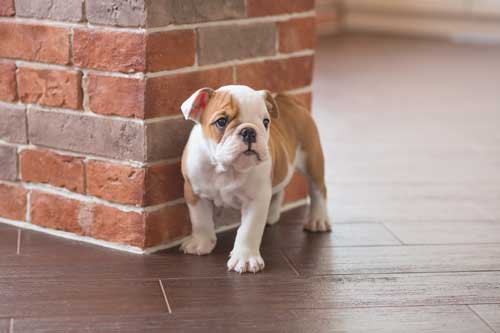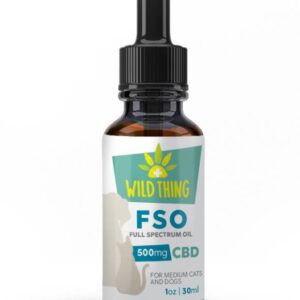One of the best times of owning a puppy is the early stages of their life, from the day they open their eyes for the first time they let out a bark. There are a lot of phases and milestones during the puppy development stages, some of those moments can be challenging while some are adorable, each puppy development stage is its own adventure for both the puppy and the owner. Understanding the different puppy development stages is vital in helping your little pup grow into a strong independent dog, that’s also happy and healthy. First we’ll take a look at the puppy development stages after birth, the puppy stages by week and then puppy stages month by month. Each phase brings its own challenges but also amazing moments you will cherish with your puppy for years to come.
Stage one: Birth to 3 Weeks Old
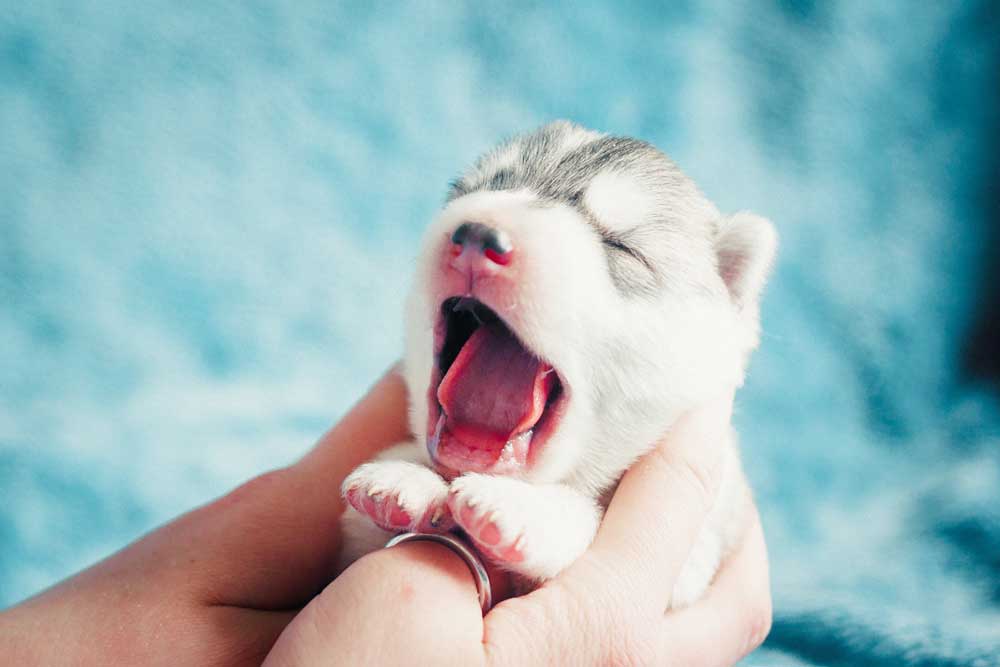
The first few weeks of a puppy development stage are usually pretty uneventful from the puppy’s perspective. For the first three weeks a puppy isn’t capable of certain senses, their eyes, ears and nose don’t start to work properly until around 3 weeks, they also barely respond to human interaction until that point. The first weeks for your puppy will consist of a lot and we mean A LOT of sleeping, sleeping is a vital stage of puppy development after birth and is needed for the puppy to properly develop out of their puppy development stages.
During this stage it’s very important to implement tactile stimulation, which is another key element in the puppy’s development stage. Studies have shown that just a few minutes of handling the puppies helps with development during their first few weeks, handling these puppy’s helps make them more resistant to stress and simulates the action of their mother licking them.
The two to four week stage is when puppies start to become aware and interact with their brothers, sisters and most importantly, their mother. Their main senses begin to develop during this period, their eye sight becomes fully functional, with their hearing, smell and baby teeth all starting to emerge as well. This is when they also begin to do regular dog things such as begin to walk, bark and wag their little tails. Another key element of this stage is that puppies begin go to the bathroom without the stimulation of their mother. Weaning the puppy from their mother is another developmental stage that takes place during the first few weeks, puppies also need to be switched over to starting to eat solid food.
Stage Two: 3-8 Weeks Old
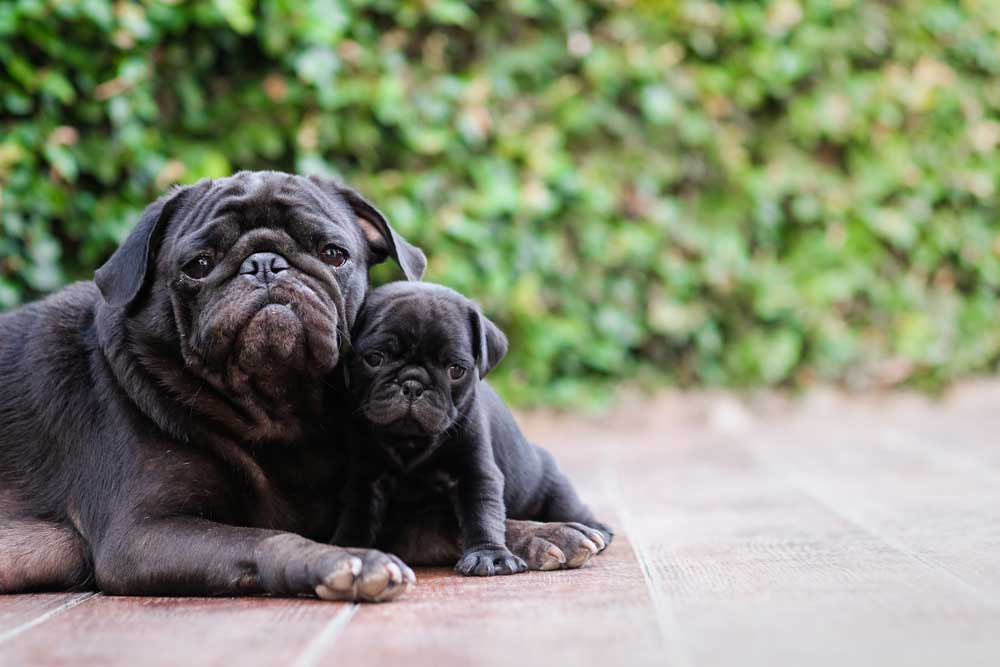
After the pup begins to walk then the fun starts! At this phase in their little life, it’s vital that interaction with brothers and sisters is happening. This is an important stage for a number of reasons, such as gaining social skills and learning inhibited biting (play biting). Being close with their mother and siblings is important for learning the ins and outs of a group structure and the ranking within the litter. This is also when puppies become vocal with things like play barking and growling. This is when the socialization of your puppy will begin, make sure to have a variety of people interacting with the puppy. During the socialization period, it’s also very important to expose your puppy to other normal experiences like crate-training and car rides.
Training and socialization is a big part of this stage in a puppy’s life, things like house training can start around the 5 week mark, puppies will likely follow their mother outside or can be taught how to go to the bathroom outside. Make sure to not take the puppy away from its mother before the 8 week mark, this is vital in the puppy’s development. During the six week mark you can start with the house training, like introducing them to their a collar, familiarizing them with their name and providing rewards like treats when they do something positive.
During this period it’s also important to make sure your puppy is scheduled for their vaccinations, speak with your veterinarian about the appropriate shots and scheduling of shots. Make sure your puppy is vaccinated before they socialize with other dogs and cats, they may pick up a disease if they aren’t properly vaccinated before socializing with other animals.
Training a dog is an ongoing commitment throughout their life, but training during this time period can help groom the puppy into a well-adjusted dog, this should of course be done under the supervision of the puppy’s mother.
Stage three: 8-12 Weeks
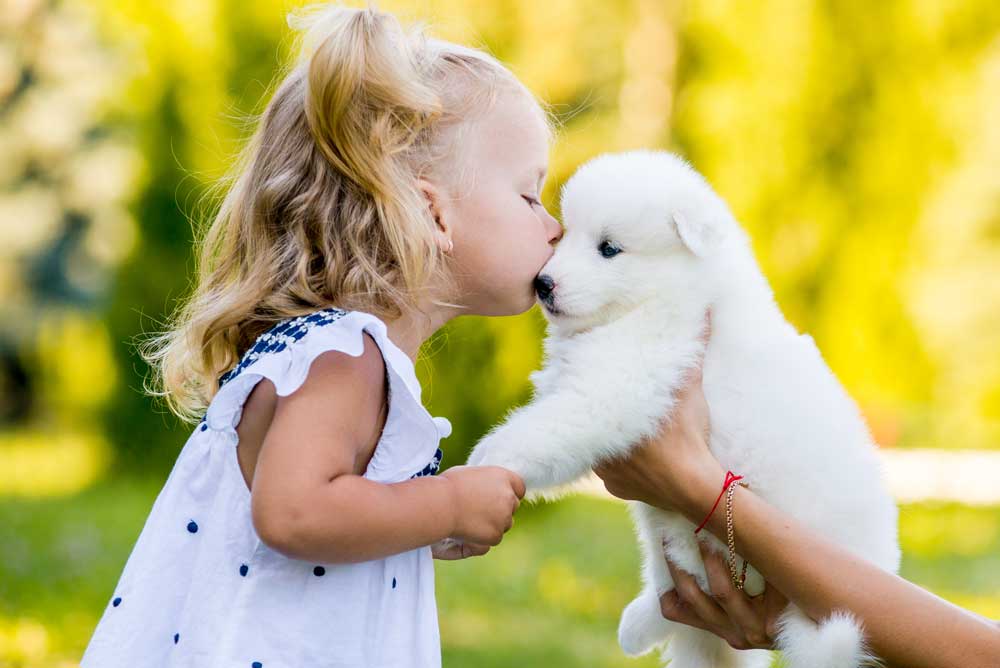
This is the stage where your puppy starts to think for its self and becomes a bit more independent with their movements and actions. Around 8 weeks is usually when a puppy is adopted and separated from the litter. This is typically the time adoption starts to take place for puppies as their fear response has started to become more heightened, waiting too long to remove them from their mother and siblings can be harder for the puppy to get used to a new environment so it’s best to separate them no later then 10 weeks.
This stage of puppy development is when training really starts to ramp up and become a priority, especially if the puppy has changed environments and will be living as the only dog in the household. It’s important to note that this time period requires a lot of socializing with the puppy as it needs a lot of attention, if the owner is away from the home for 8-10 hours a day then it might not be the right time to take on the responsibility of the puppy. During weeks 8-9 you should be housebreaking the puppy, teaching it to go to the bathroom outside, not to chew on the furniture and other basic things that should be established on to a puppy when they are in a new environment.
Stage four: 12-24 Weeks
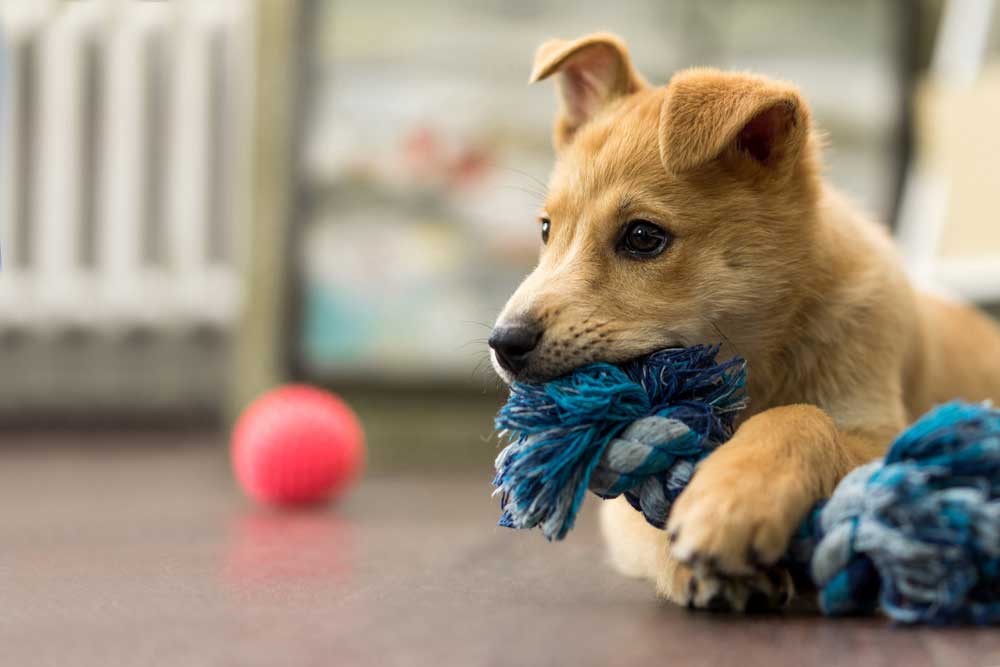
This is when your puppy will begin to grow their teeth which makes having a lot of chewing toys a priority, this is also when the puppy will begin to independently explore and go off on their own around the house. Set out a designated play area for the puppy so they know where they can play and the owners can supervise. Your puppy will need a lot of stimulation and human contact during this period, make sure they have enough toys and attention, this will help with their development and social skills.
This is also the stage where you can start to teach your new pup some commands, make sure to keep a positive voice and a happy demeanor, puppies and dogs, in general, are much more likely to listen to us if we use a happy tone of voice. Both poppy training and crate training are common during this stage of a puppy’s life. When create training make the crate is a fun place for the puppy to be, a lot of puppies spend long periods of time in their crates and this can cause it to become a negative living environment for them. During this period accidents will happen, and you should always remain positive and upbeat, even if they make a mess in the crate or on the carpet. Puppies don’t fully understand at this stage negative disciplining and could affect them further in their development.
Stage Five: 4 to 6 Months
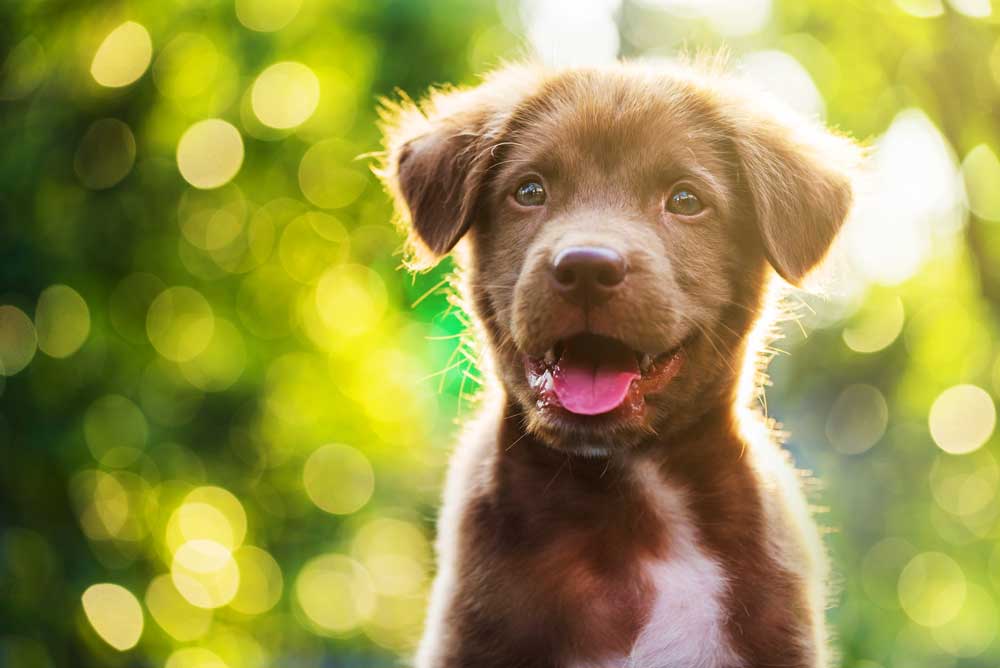
This is the time where you should look at puppy development stages month by month, instead of puppy stages of development by the week. At this point in a puppy’s development stage they are becoming less of a puppy and more of a teenager, and like any teenager comes the demand for more independence and maybe even some attitude. Allow for the dog to get used to the surrounding areas, especially when taking them out for a walk. They are now understanding their environment and are looking to explore and know what is out there, like how many dogs live in the neighborhood, exploring all the smells and so on.
This is also a great time to get your dog used to the vet as with most dogs it can be a handful once they realize where they are going. It’s been recommended that you ease your dog into vet visits with what is known as happy visits, this is when you take your dog to the vet and have them sit in the waiting room, give them a few treats and then leave. This makes the situation easy to handle and will help your dog when you actually need to visit the vet for vaccinations. Instead of looking at puppy stages of development by the week you can now look at it as puppy development stages month by month as they become young adults. The stages of puppy development after birth get easier so make sure to enjoy the big moments and don’t let the little annoying moments get to you, a puppy is like a new child that needs all the love and nurture it can get.
Want to Learn More?
Download our AILMENT GUIDE NOW.
PLUS! all FIRST TIME buyers get 50% off their additional order. Visit verlota.com to get your discount code.

